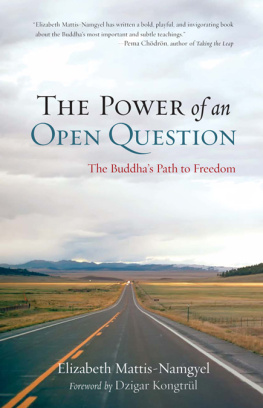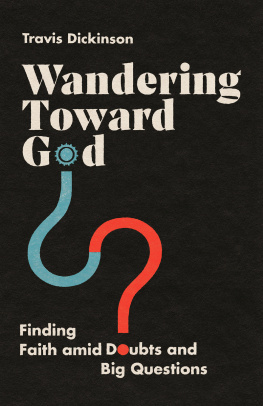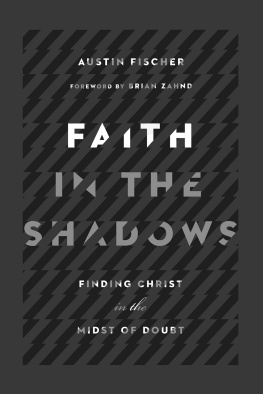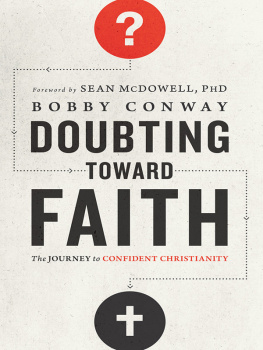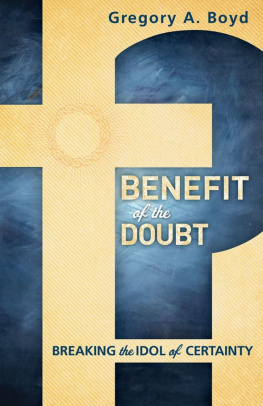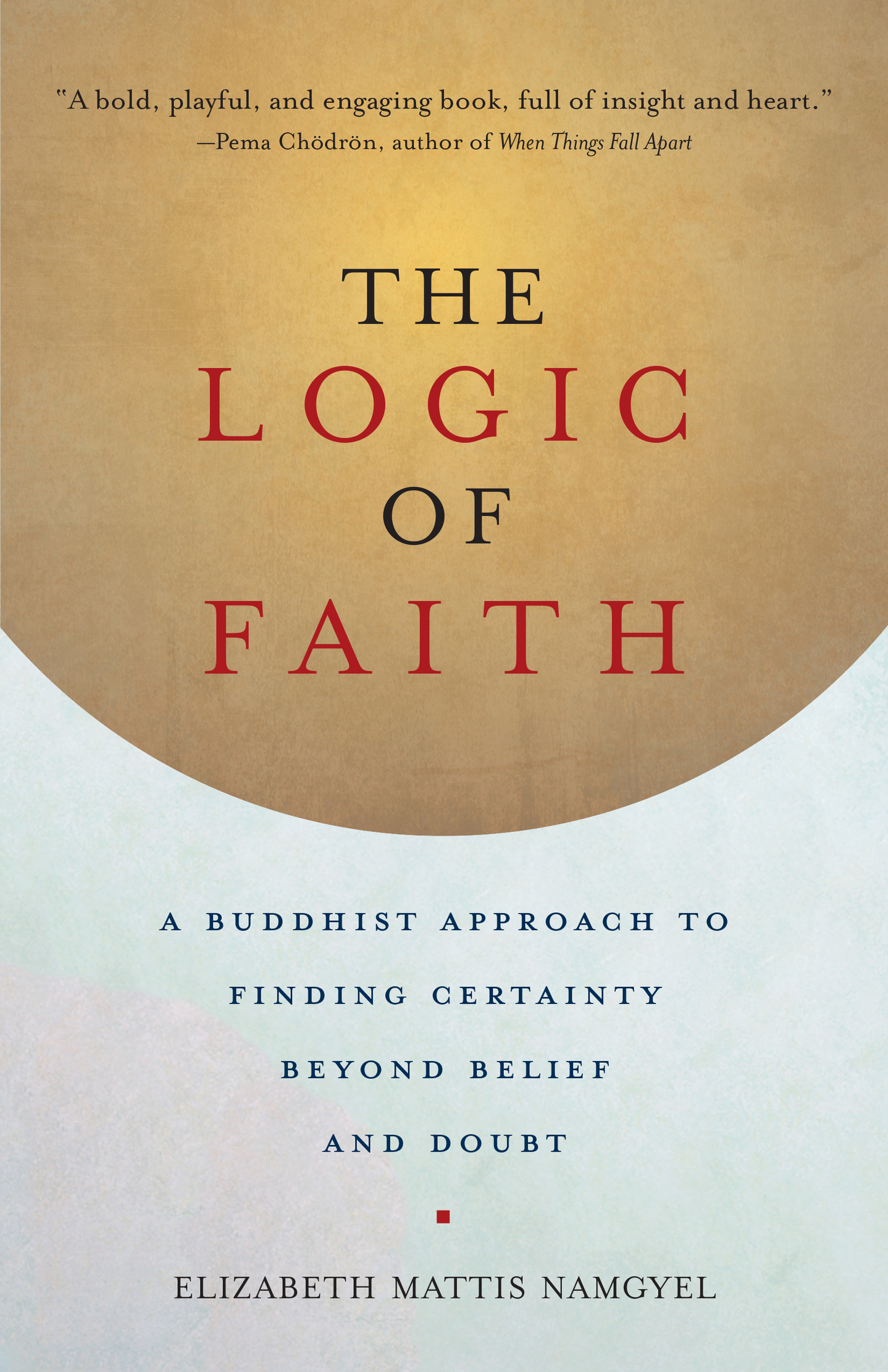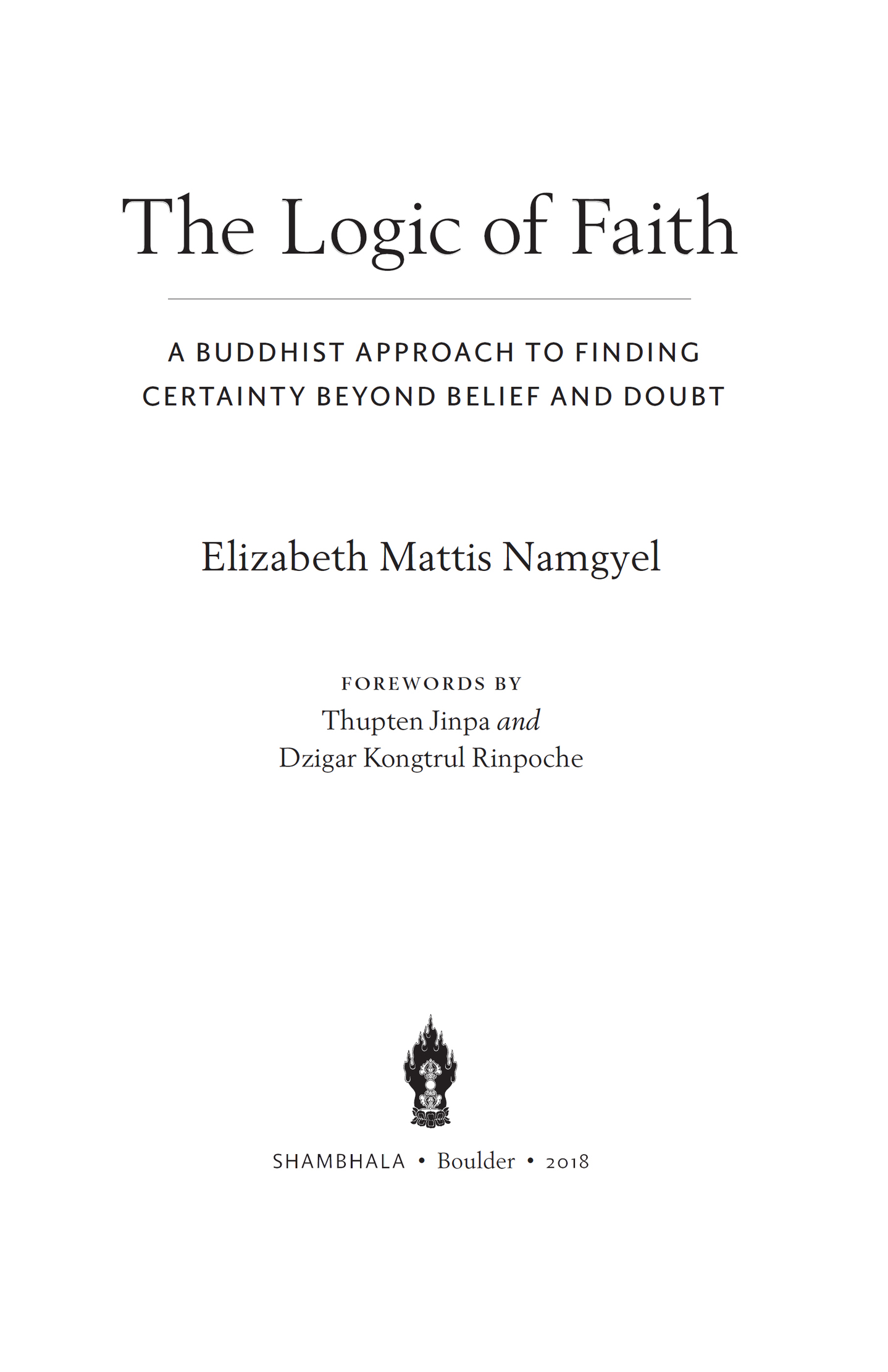Contents
There is joy in discovering the truth of the Buddhist teachings as a living experience. Elizabeth Mattis Namgyel takes us on a personal exploration of the Buddhas most essential insight: pratityasamutpadaa.k.a. dependent arising.
Pema Chdrn, author of Living Beautifully
The Logic of Faith looks into how we tend to seek comfort in ideas, even though they cant provide real comfort. Elizabeth beautifully illuminates the possibility of getting free from the prison of our ideas, by softening into uncertainty and developing real faith. A rich and helpful book.
Sharon Salzberg, author of Lovingkindness and Real Love
The beauty of this book lies in its remarkably creative presentation of this insight of dependent arising. The author brings this fundamental insight of the Buddha to life for the contemporary reader.
Thupten Jinpa, author of A Fearless Heart
The Logic of Faith by Elizabeth Mattis Namgyel is a book that Americans who identify as spiritual-but-not religious and also those who are practicing people of faith will find helpful. As a contemporary American who has devoted herself to the most profound teaching and practices of Tibetan Buddhism, she is uniquely poised to translate esoteric and subtle insights into language that is accessible and inviting. Elizabeths language is direct and her style is friendlyas it is with the most helpful writers in the area of spirituality and religion, reading Elizabeths book is like sitting down for a conversation with a good friend.
Rt. Rev. Marc Andrus, Bishop of the Episcopal Diocese of California
ALSO BY ELIZABETH MATTIS NAMGYEL
The Power of an Open Question:
The Buddhas Path to Freedom
Audio versions of the analytical meditation instructions found in this book can be accessed at www.shambhala.com/logicoffaithmeditations.
SHAMBHALA PUBLICATIONS, INC.
4720 Walnut Street
Boulder, Colorado 80301
www.shambhala.com
2018 by Elizabeth Mattis-Namgyel
Parts of the Belief section in chapter 3 were previously published in Elizabeth Mattis Namgyels article Something to Believe In, Shambhala Sun, November 2012.
All rights reserved. No part of this book may be reproduced in any form or by any means, electronic or mechanical, including photocopying, recording, or by any information storage and retrieval system, without permission in writing from the publisher.
eBook design adapted from printed book design by Lora Zorian
Cover design by Jim Zaccaria
L IBRARY OF C ONGRESS C ATALOGING - IN -P UBLICATION D ATA
Names: Mattis Namgyel, Elizabeth, author.
Title: The logic of faith: a Buddhist approach to finding certainty beyond belief and doubt / Elizabeth Mattis Namgyel.
Description: First Edition. | Boulder: Shambhala, 2018. | Includes bibliographical references and index.
Identifiers: LCCN 2017022627 | ISBN 9781611802306 (pbk.: alk. paper)
eISBN9780834841352
Subjects: LCSH: Religious lifeBuddhism. | Belief and doubt.
Classification: LCC BQ5405 .M388 2018 | DDC 294.3/444dc23
LC record available at https://lccn.loc.gov/2017022627
v5.2
a
ODE TO GRACE
I pledge allegiance to the experience of grace, the expression of human insight from which all authentic faith traditions have arisen. I pledge allegiance to Mother Emptiness, prajnaparamita, to the wisdom of the Buddha, and the great spiritual genius, Nagarjuna. First and foremost, I pledge allegiance to my beloved teacher, Dzigar Kongtrul Rinpoche, who introduced me to the teachings of pratityasamutpada, which inspire me to continue my inquiry into the logic of not knowing and the pursuit of grace.
CONTENTS
FOREWORD
Thupten Jinpa
I am delighted to be invited to offer a foreword to Elizabeth Mattis Namgyels delightfully engaging book The Logic of Faith: A Buddhist Approach to Finding Certainty Beyond Belief and Doubt. Despite its seemingly simple language, the book addresses some of the most challenging questions of spiritualitythe nature of faith, its relation to human reason, and their roles in opening the gateway to awakening, as well as the fundamental question of the relationship between our perception and reality. In taking the role of critical inquiry, or analytic meditation, as part of the path seriously, I see this book as an important and timely corrective to the growing trend within contemporary writings on Buddhism, many of which tend to ignore the more proactive approach of what the Buddhist tradition calls the wisdom aspect of the path.
A central theme of this book is the notion of dependent origination, or dependent arising, which the author correctly characterizes as one of the most important insights of Buddhism. The early Buddhists understood this principle in terms of mere conditionedness, offering a way of understanding both our own existence as well as the worlds, not as something predestined but simply through the coming together of causes and conditions. As the profound implications of the principle of dependent arising came to be explored more deeply, it became recognized as revealing nothing short of the true nature of everything. In fact, in a scripture in the Pali Canon, we read the following statement attributed to the Buddha:
He who sees dependent arising sees the Dhamma; he who sees the Dhamma sees dependent arising.
It is no wonder then that, in his Treatise on the Middle Way, the influential second-century Buddhist thinker Nagarjuna singles out the teaching of dependent arising as the rationale for his paying homage to the Buddha. Following in his footsteps, the Tibetan master Tsongkhapa also wrote an entire eulogy to the Buddha for his teaching of dependent arising.
What then is this principle of dependent arising? Why so much fuss, one might ask? The Sanskrit term rendered as dependent arising is pratityasamutpada, which literally means arising through dependence and in a related manner. The idea here is that while things arise in dependence upon some other factors, they do so not in isolation but within a web of deeply interconnected complexity. The Buddha illustrates this dependence with the imagery of two bundles of reeds leaning up against each other, such that when one is knocked over the other too would instantly fall. Thus, our authors characterization of dependent arising as leaning is spot on. Buddhist thinkers take great pains to explain that the two terms, dependent and arising, should not be understood as having a sequential relationship, as in the statement, I washed my face and had breakfast. It is not the case that things first enter into a dependent relationship with each other and then arise or come to being. Rather, dependence and arising should be understood as being simultaneous, as in the statement, I am going by flying, wherein the two verbs do not refer to two separate sequential acts.
This notion of dependence, at the heart of the Buddhist view of dependent arising, can be understood at different levels. At the basic level, there is the causal dependence in that nothing arises without dependence on their causes and conditions. This basic-level meaning is captured in the Buddhas well-known statement:
When this exists, that exists; from the arising of this, that arises.


